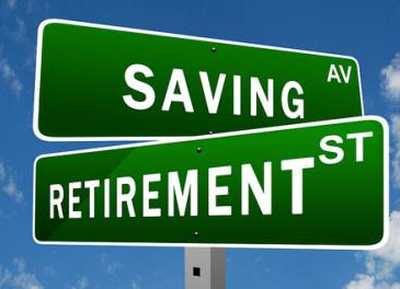
The sooner you create a plan and put it into action, the better the chance of your early retirement dream becoming a reality, says Naval Goel
We all want a retirement phase where there is no stress and worries about the financial planning at the later stage of life. One wants to retire with peace of mind and sense of fulfillment and achievement in life.
But when does that phase come?
How do you determine that this is the right time to retire?
What is that stage in life where you feel you have attained the right lifestyle and you can retire at ease?
The answer depends on one factor: Your savings rate, as a percentage of your take home pay.
To simplify it further one needs to break it down more and determine how much you take home each year? And how much you can live on?
This seems to be quite simple and easy to figure out but the relationship between the two factors can be a bit surprising.
If you are spending 100 per cent of your income, then you will never be prepared to retire unless you have other sources of savings like wealthy parents, social security, pension fund etc. But this scenario is very rare.
If you save reasonable amount of money out of your earnings, say 60 per cent of your earnings are your expenditure and rest 40 per cent you manage to save while gradually increasing the percentage with the increase in your earnings, then by the age of your retirement you will have sufficient savings to retire at peace.
How to determine your needed retirement income
The wise thing to do is to retire on an income which is at least 80 per cent of your pre-retirement income. This can be set as a benchmark to start your future savings and gradually increasing upon the same.
Your savings depends upon your plan for your retirement life and can vary from the amount planned.
For example, if you expect that your housing cost, at the time of retirement, will be lower depending on various facts then you can adjust your savings accordingly.
If you feel that the health insurance will be expensive at the time of retirement, then one has to plan the savings accordingly.
Once you have your income number figured, you can then calculate the size of the investment portfolio that will be necessary to produce that income.
Retirement should be a well thought out plan. It should determine your retirement income goals and the actions necessary to achieve the same.
The early bid advantage
Investing in equities in early stage is one such good plan if someone is planning to retire early. Equity returns can boost the retirement savings pool over the long period.
Any delay in saving for your retirement plan can lead to investment of huge amount at a later stage in life. This can be heavy on the pocket as the share of equity investments as a portion of retirement savings will have to be lower.
- Investing in equity works when it gets the time to compound in the market and multiply eventually with lower but regular savings.
- It is wise to start saving early in life say around 25-26 years of age.
- If you start saving from this age then you have considerable number of years, say 30 to 35 years, for saving and investing a decent amount for meet your retirement goal.
- A disciplined approach and a detailed cost-benefit analysis are to be done in order to determine the amount need to be spent now and saved for the next 25 years.
- A strict approach and a financial discipline must be maintained to keep your retirement savings intact.
- Review your financial plan regularly to keep a check on your savings and keeping them at par with your lifestyle.
- The sooner you create a plan and put it into action, the better the chance of your early retirement dream will become a reality.
Photograph: 401(K) 2012/Creative Commons
Naval Goel is CEO and Founder, PolicyX.com











